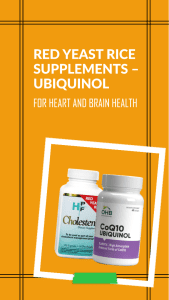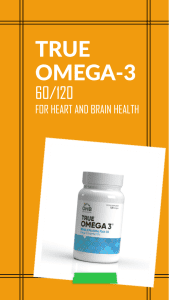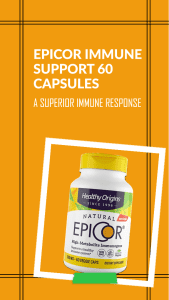
Share
Welcome back to your favorite place for health tips — Optimal Health Bridge! Today, we’re talking about something that affects millions of people: osteoarthritis. It might not get a lot of attention when it comes to food and supplements, but it should. And here’s a little secret — omega-3 fatty acids may actually help you live longer if you have osteoarthritis. That’s right, longer life, not just less knee pain!
So grab a cup of tea or coffee and let’s explore a new study that shows how omega-3s might help people with osteoarthritis not only feel better, but also have a lower risk of dying from other health issues.
What Is Osteoarthritis?
Osteoarthritis, also called OA, is the most common type of arthritis. It affects your joints — especially the knees, hips, hands, and spine. It can make your joints stiff, sore, and hard to move. It’s kind of like when an old door starts creaking and sticking — only it’s your body.
Here are some common signs of OA:
- Joint pain that sticks around no matter what
- Stiffness, especially in the morning
- Trouble moving, like bending down or walking
But OA doesn’t just affect your joints. People with OA are at higher risk for other serious conditions, like:
- Heart disease
- Lower quality of life
- Higher chances of dying earlier
There’s no cure for OA, but doctors often suggest treatments to manage the symptoms. That’s where omega-3s come in as a helpful addition.
What Are Omega-3 Fatty Acids?
Omega-3s are a type of healthy fat your body loves. Think of them as the super fuel your body needs to stay healthy and strong. They mainly help reduce swelling in the body, support your heart, brain, and yes — your joints too!
There are three main types of omega-3s:
- ALA – Found in flaxseeds, walnuts, and some leafy vegetables
- EPA – Mostly found in fatty fish like salmon and sardines
- DHA – Also found in fish and great for your brain and eyes
You can get omega-3s from lots of food sources, including:
- Salmon, sardines, mackerel, and anchovies
- Flaxseeds, chia seeds, hemp seeds
- Walnuts and soybeans
- Seaweed and algae
- Fish oil supplements
What can omega-3s do for your health? Plenty! They can:
- Lower inflammation
- Support heart health
- Help your brain work better
- Keep your joints moving smoothly
And according to the new study, they might even help you live longer — especially if you have OA.
What the New Study Found
Researchers looked at more than 20,000 people who had OA. They kept track of what they ate, their activity levels, and whether they took omega-3 supplements. Over time, the scientists watched who stayed healthy and how omega-3s may have played a part.
Here Are 10 Amazing Discoveries From the Study:
- People with the most omega-3s in their diet had a much lower chance of dying from any cause.
- The risk of dying from heart-related problems dropped by up to 30%.
- There was no link between omega-3s and higher cancer risk, which is good news.
- More omega-3s = better results. It's a clear pattern.
- Older adults had even more benefits, likely due to more background inflammation.
- Women seemed to gain more from omega-3s than men.
- People who could walk faster and move better lived longer.
- The good effects of omega-3s showed up even without other “healthy” diets.
- People who were not overweight saw stronger protection.
- Supplements worked just as well as getting omega-3s from food.
Pretty cool, right?
How Do Omega-3s Work?
Here’s a quick breakdown of how these powerful fats help your body, especially if you have arthritis or other health concerns:
- They calm down inflammation in your body.
- They help keep your cholesterol and blood pressure in check.
- They support blood flow and help your heart work better.
- They help your immune system respond in a balanced way.
- They protect your joint tissues and cartilage.
- They limit cell damage by fighting free radicals.
- They improve brain clarity and coordination.
- They make your muscles and bones work better together.
- They keep your arteries soft and flexible.
- They may even help with blood sugar and metabolism.
In short, omega-3s offer a bunch of benefits — for your joints, heart, brain, and more.
Simple Ways to Get More Omega-3s in Your Day
Not sure how to add more omega-3s to your meals? It’s easier than you might think:
- Eat fatty fish like salmon or sardines 2–3 times a week
- Sprinkle chia or flax seeds in yogurt or smoothies
- Snack on walnuts instead of chips
- Use flaxseed oil in your salad dressing
- Take a daily fish oil supplement
Don't like fish? No problem! You can try algae-based omega-3 supplements. They offer EPA and DHA — just like fish — but come from plants instead.
Why Choose Optimal Health Bridge?
At Optimal Health Bridge, we believe health begins with smart nutrition and high-quality supplements. That’s why we offer top-grade omega-3 products that help support your body inside and out.
Our omega-3s are:
- Made from clean, small fish like anchovies
- Filtered for purity so there’s no mercury
- Balanced with the right mix of EPA and DHA
- Easy to swallow and gentle on your stomach
Final Thoughts
Osteoarthritis is tough. But that doesn’t mean you have to live with pain forever, or shorten your quality of life. Something as simple as adding more omega-3s — from food or supplements — could make a big difference in how you feel and how long you live.
Research shows omega-3s are more than just joint helpers. They protect your heart, fight inflammation, and may even help you live longer if you have OA. So whether you cook up some grilled salmon, blend flax seeds into your oatmeal, or take a daily supplement, you’re moving in a healthy direction.
Let’s make joint health easier — and more delicious. Your body will thank you!
Ready to feel better and live longer? Check out our omega-3 supplements today at OptimalHealthBridge.com.
This post is for educational purposes only and doesn’t replace advice from your doctor. We always recommend talking to your healthcare provider before starting any new supplements, especially if you have a medical condition.
Have you added omega-3s to your routine? Tell us in the comments — we’d love to hear your story!










